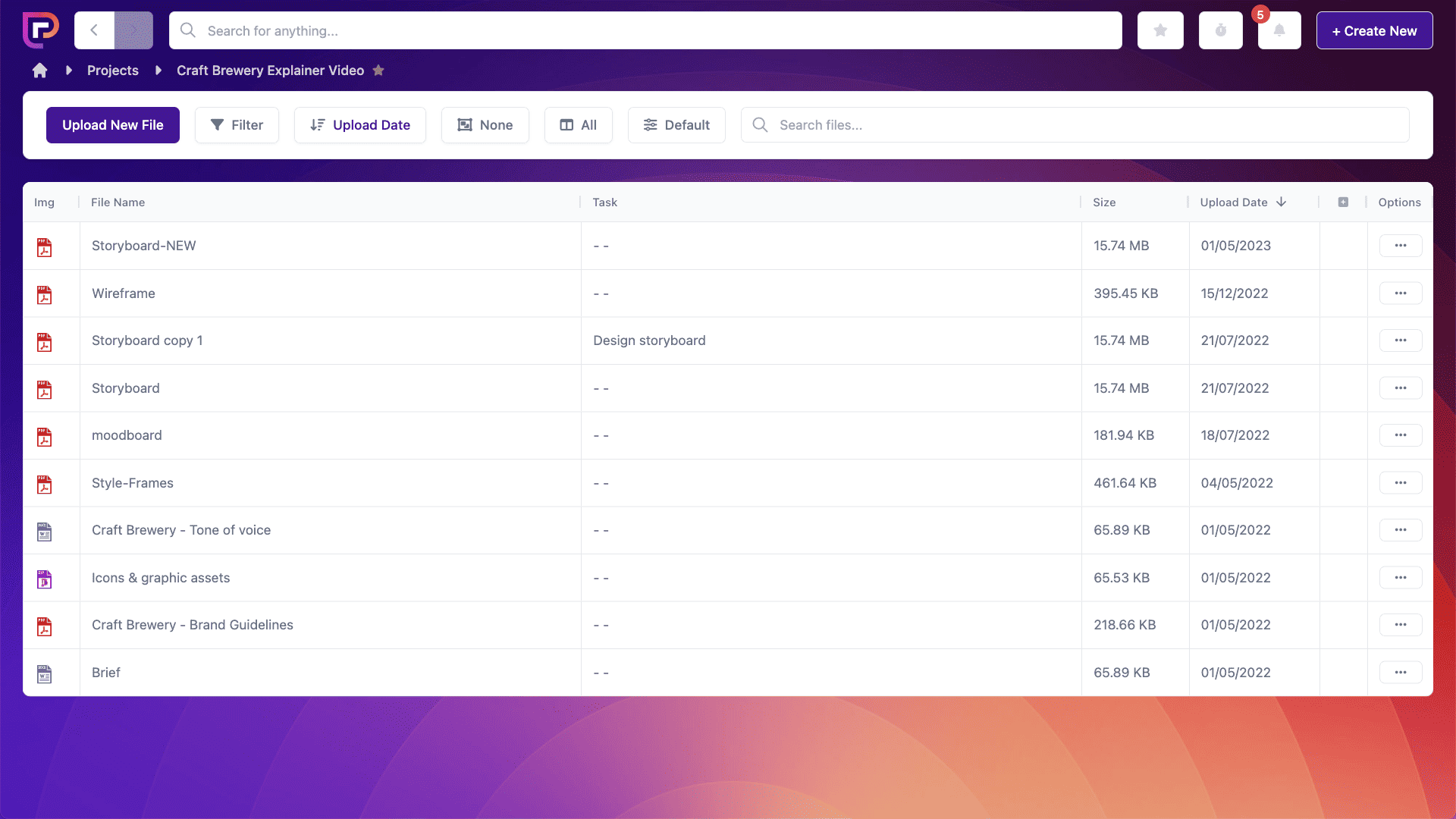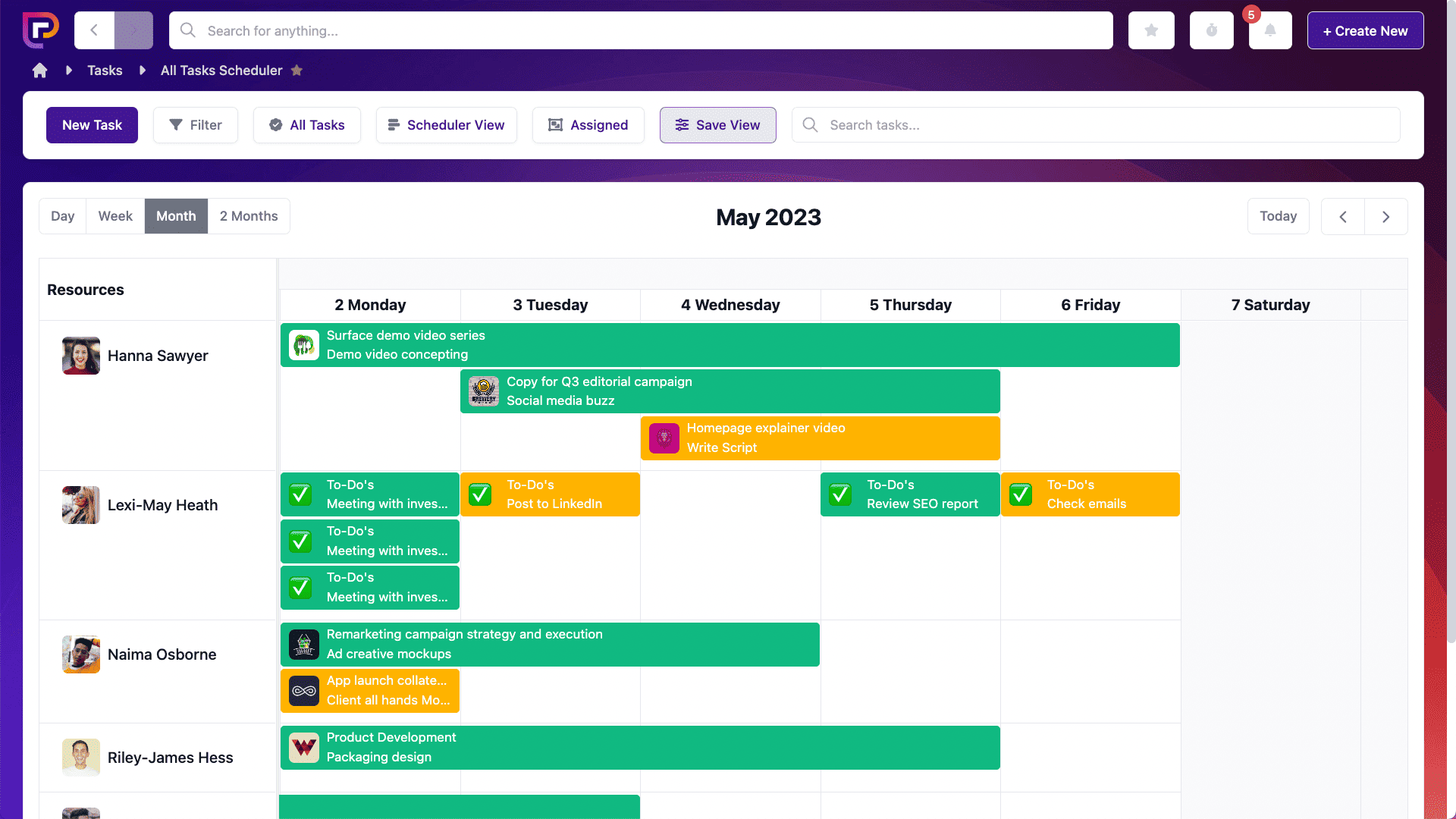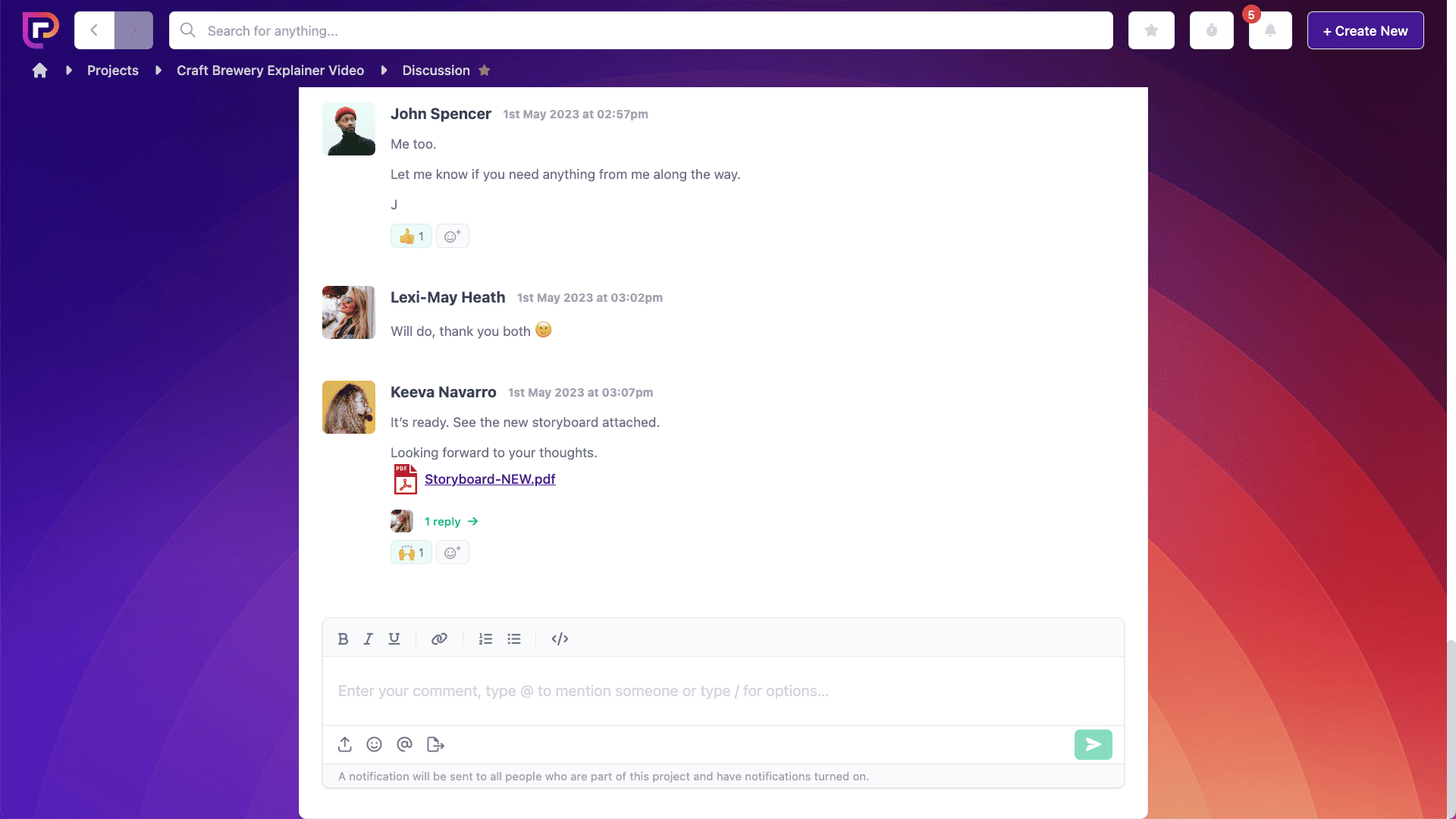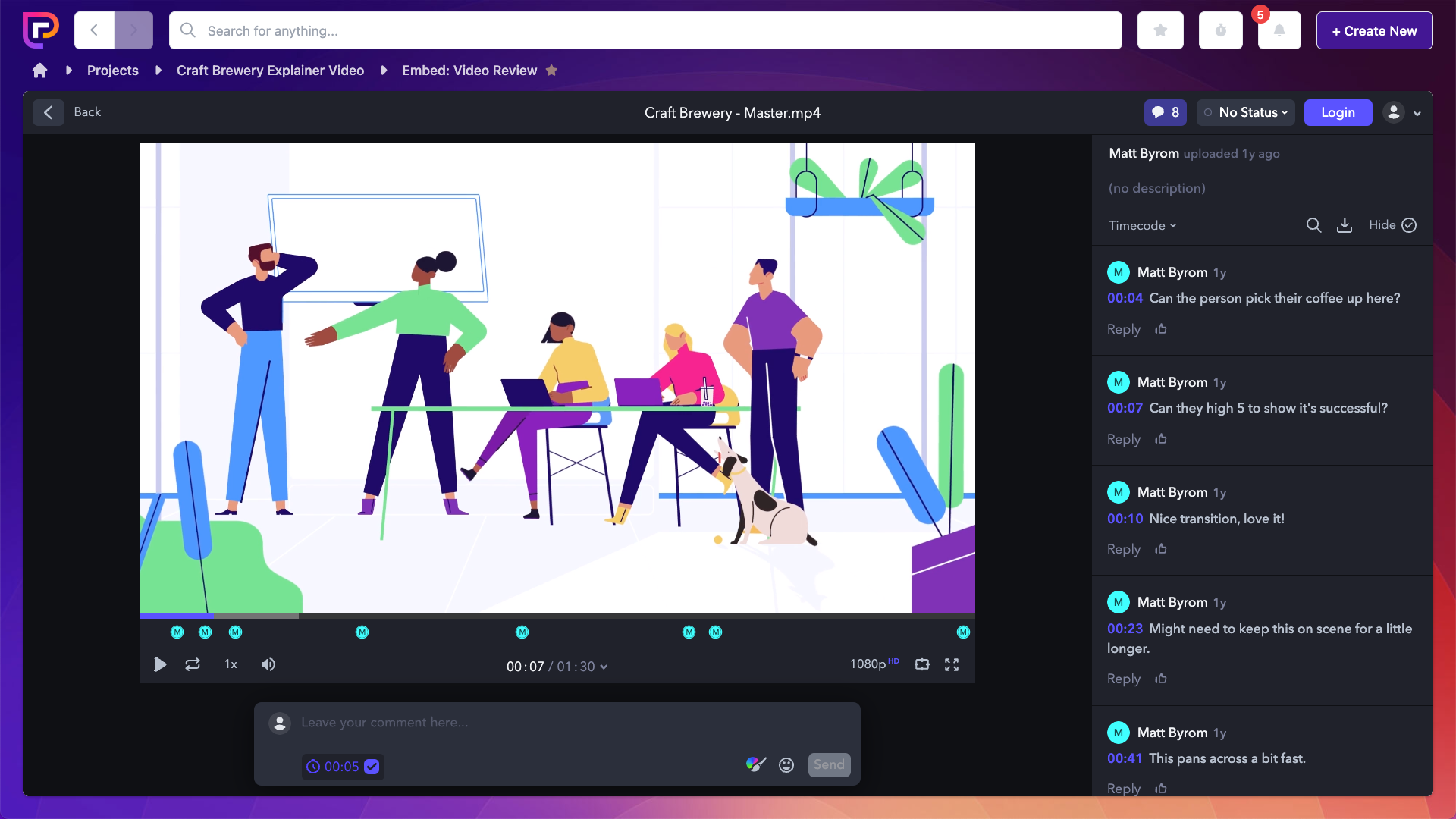Last updated on 27th June 2024
In this article we’re going to go through the steps required to manage creative teams successfully – WITHOUT stifling them.
Proper management is essential if you want your team to thrive and be successful. According to a Global Performance Management study by Mercer, “thriving employees are 4x more likely to work for a company that understands their unique skills and interests.”
So let’s take a look at exactly how you can manage your creatives without stifling them, in 6 simple steps.
1. Give them a solid brief
If there’s one thing creatives need it’s a solid brief that clearly communicates what you want from them, and what you hope to achieve from your project.
A solid brief is extensive and covers everything from who your target audience is, to what the intended outcome of the campaign is – and everything in between.
This includes style guides, specifications, brand voice documents, buyer personas. Basically, anything you have that can help the creative team to understand your business, your audience, and your goal will really allow them to create something amazing.
When sharing multiple documents like this, projects can get a little messy. That’s why we recommend using a project management system, like Project.co.

With Project.co you can use the Files tab to upload all of your documents and keep them in one secure and easily accessible place throughout the duration of your project.
2. Create a schedule
After creating and sharing a solid brief, you need to talk about the schedule.
Creatives are passionate about their work. Their work is their art. As such, if there’s no deadline in place it’s very easy for creatives to get hung up on the little details. They would tweak their work forever if you let them.
That being said, be reasonable about your deadline. Creative work is chronically undervalued – with people often underestimating just how much time and effort goes into it.
So it’s important to respect the creative process. And remember the old adage: Do you want it done fast or do you want it done right?
Scheduling is especially important if your project requires multiple creatives getting involved at different times.
For example, at our sister company Wyzowl we make animated explainer videos. During the process of making a video, work is passed from the script team, to the design team, and finally the animation team.
A schedule allows each team to know when they’re going to be involved so that they can successfully manage the rest of their workload, and give your project the attention it deserves.
The Project.co Scheduler is a great way to manage your creative team. It allows you to see who is working on what, and when.

Plus, the drag and drop functionality makes it easy to move tasks onto different dates or even different team members.
3. Communicate regularly
Creatives tend to be more autonomous than other workers. And this is typically because you’re relying on their expertise to create something great!
But, while autonomy is awesome, it’s also important to make sure you check in regularly with your creatives on the progress of the project.
Make sure you’re involved in any and all big decision-making moments, and encourage your team to reach out with any questions or possible roadblocks they foresee.
With Project.co, you can be in constant communication with your creative team. Our discussions tab makes it easy to chat, leave feedback, and even attach files.

And every message in your conversation thread is kept in date order so it’s easy to scroll through to find earlier communications.
Centralised communication like this allows everyone involved in the project to have access to all messages, even if someone is unexpectedly out of the office.
This is a great benefit over email communication when you consider that 63% of people have missed a message or important piece of information that went to a colleague’s inbox while that colleague was away or absent.
4. Offer constructive feedback
Creatives are used to having their work evaluated. So your creative team should be excellent at taking feedback on board.
But it’s your job to make sure that all feedback is constructive and useful to creatives.
Simply saying “I don’t like this” or “Can we try something else?” doesn’t give creatives any information on how to improve their work.
There are a million different ways to change, tweak, or update something so it’s vital to offer clear direction in your feedback to avoid wasting your creative’s time, and your own time!
Feedback should also be shared at regular intervals, to reduce the amount of re-work needed. Better yet, you could collaborate with your creatives on live documents to speed up the process.
Software like Google Docs, InVision, Miro, and more make real-time collaboration easy. And with Project.co, you can embed live files from platforms like these and leave your feedback in real-time, without ever leaving your project!

5. Show flexibility and trust
One of the biggest reasons that creative work is often undervalued and people struggle to manage creatives without stifling them is because a lot of creative work takes place in the mind.
It takes time to think of new ideas and work out the best way to do something, or show something, and so – to an outsider – it can seem as though creatives aren’t actually working at all!
There’s a great quote by journalist Burton Rascoe (of the New York Herald Tribune) that captures this perfectly:
When you understand this you can give your creative team the space, flexibility, and the trust they need to come up with something amazing.
When managers don’t acknowledge the time it takes to brainstorm new ideas, they end up with an uninspired creative team that feels stifled.
6. Praise. Praise. Praise.
More so than many other types of workers, creatives put their heart and soul into their work. Oftentimes, they see an idea through from conception all the way to the end product.
It’s important to praise your team for this kind of dedication, and be sure to show your appreciation for their input.
This simple action of offering your appreciation can be an excellent motivator for your creative teams.
You can praise your creative team in many ways. A sincere “thank you” is a great way to go, and it also helps to pick out something specific that you like about their work and give them praise on that.
According to the same SurveyMonkey study, the ways in which people most like to be recognised at work are as follows:
– 20% prefer visibility to leaders
– 57% prefer cash bonuses
Final thoughts
Managing a creative team isn’t easy, but it can be if you know what you’re doing.
And when you have a successful creative team, there’s no limit to what you can achieve. After all, even the most incredible marketing stunts like the Red Bull Space Dive all started with an ambitious creative team!
When it comes to managing creative teams, we know our stuff. Project.co was made especially for creative teams – our own, in fact! – and now we’ve helped many other creative teams to save an average of 2 hours per day on unproductive work.


